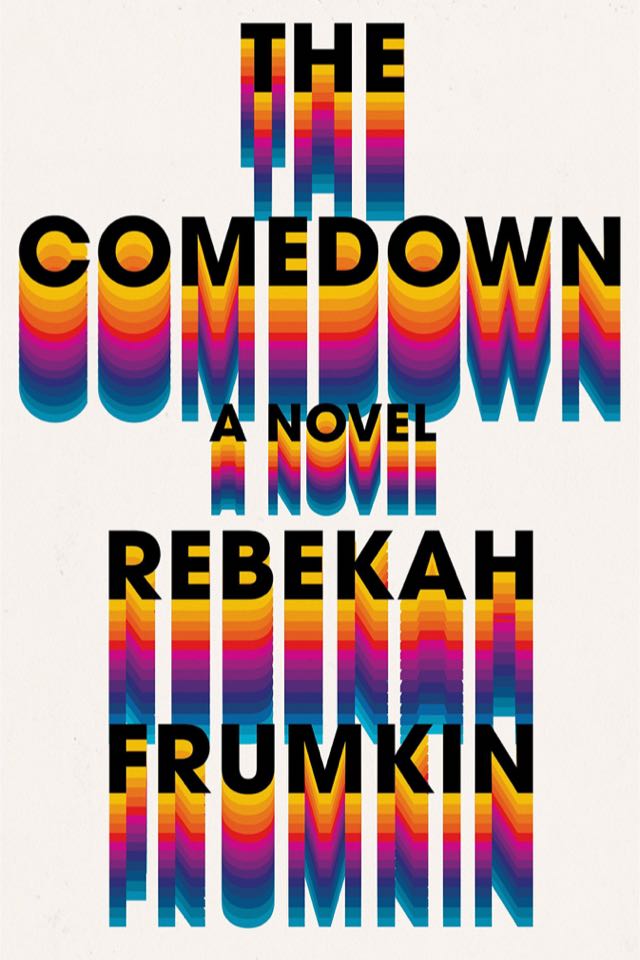The Comedown
— Ilana Masad
I remember getting the publicity notices regarding Rebekah Frumkin’s debut novel, The Comedown. This is what I knew about the author: that she is a queer woman with a Jewish background who attended the Iowa Writers Workshop, has written brilliant essays on mental illness and envy, and that a queer editor friend of mine loved the book and recommended it to me long before the publicity emails arrived. When they did, I kept puzzling over the book’s shorthand description and the frequent use of the word “patriarch.” It’s true that two of the main characters around whom a central mystery revolves are men, but the book isn’t really about them. It’s about so, so much more.

The Comedown does introduce a fateful night in 1973 early on: Reggie Marshall and Leland Bloom-Mittwoch Sr. are, respectively, drug dealer and drug user, and where the tale from Reggie’s point of view is based in reality—Leland is his client, and an annoying one at that—Leland’s point of view is narrowed to a fantasy in which he himself is the always beleaguered victim and where Reggie is his best friend. The fateful night includes a shooting, which Leland partially witnesses, Reggie is believed to be dead, and Leland steals a sum of money from the room.
From there, though, the novel sprawls out across time, like the spreading and opening of a musical chord. Each chapter comes from a different point of view, moving from Reggie’s wife to their children to their partners and from Leland Sr.’s wives to the son he had by each (both named Leland, one dubbed Leland Jr. and the other Lee) to the son’s partners. Each and every one of the chapters is tightly wound, detailed to gorgeous precision without being overly wordy, and emotionally resonant. Frumkin’s descriptions of everything from the mundane to drug-addled experiences are incredible: for example, She’d awakened that morning with a Tabasco-furry, unclean taste in her mouth,
and Lee could feel himself metabolizing the drug. It was as though he’d swallowed a radioactive paste—the kind whose phosphorescent progress you could just as easily travel with your mind as with an X-ray machine.
Frumkin’s ability to do this over and over again with a slew of characters while preserving to the end a central metaphorical mystery is brilliant.
The central mystery involves the money Leland Sr. stole, which was in two yellow briefcases. Though some of it is revealed to have paid for the education of one of Reggie Marshall’s sons, for whom Leland felt responsible for a variety of reasons, the rest of the money is still missing, though at least one other briefcase is opened in the novel and found to be a decoy, holding a brick and a bible rather than money. The metaphor in this plot device is ingenious: this is a novel about the baggage we all carry, the baggage that is tangible and inheritable, yes, but mostly the emotional and psychological baggage that carries on through generations, that is perpetuated by the racism and sexism of society. Frumkin writes her characters across races and sexualities, and does so with aplomb and deep care, and the result is a novel that manages to do something incredible: it is at one and the same time a family novel of pathos and humor and a reckoning with classism and racism that have always been present in the United States.